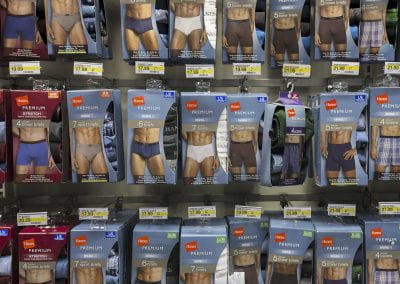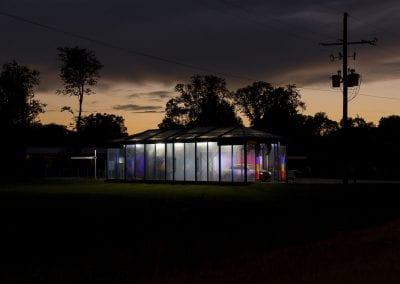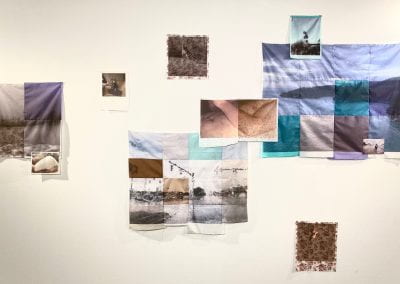Interview With Joshua A. McDevitt
-

Untitled - Joshua A. McDevitt
-

Untitled - Joshua A. McDevitt
-

Untitled - Joshua A. McDevitt
-

Untitled - Joshua A. McDevitt
-

Untitled - Joshua A. McDevitt & Megan G. King
So a little bit about Joshua before we get on to the titillating question portion of this interview,
Joshua goes by he/him/his pronouns, is 28 years old, and is from Tacoma, WA. Joshua has been doing photography since he was a kid playing with his grandma’s point and shoot camera. Joshua had taken a hiatus from photography until he began going to Western. Joshua first heard about Western from his girlfriend at the time. Since she was more focused on going to Western, Joshua began researching more and more about Western. He found Western to be enticing, especially since he was pursing a degree in computer science at the time. Later, he came to love the campus at Western and Bellingham.
Once Joshua had begun at Western, he decided to seriously pursue photography more. He spent his first quarter walking around Bellingham with his camera. Joshua said, “It felt right to move forward down that path.” Joshua currently shoots with a Canon 6D for his digital work and has some experience with film. He’s interested in a future project involving colored medium format film. He currently works as a freelance photographer while searching for opportunities as a full-time graphic designer. In addition to those, he tries to pick up college classes to teach!
Now for the questions.
- How long have you been doing photography ?
[Joshua] “Since I was a kid! I always had a camera in my hand if I had the chance. I probably got that from my grandmother – she had this black point and shoot film camera she’d take photos of us every time we visited, which was pretty frequent. I haven’t talked about my childhood relationship with photography because I used to be pretty dismissive of it since I wasn’t being taught the darkroom or whatever. Having used so many disposable and point-and-shoot cameras was formative in my skill as a photographer, despite a lack of mentorship until high school (and honestly, college).”
- What is your favorite lens(es)?
[Joshua] “PRIME! Prime lenses all day every day! In graduate school, I had access to 35mm, 50mm, and 85mm (Canon L Series) prime lenses. They all had different purposes, you know. The 85mm was great for portraits and the 35mm was better for wider shots. That said, they were all fairly versatile and I used the 35mm for most of the images in Orientation: Unsure. It was my favorite of the three.”
- What style of photography do you believe you excel at?
[Joshua] “I excel at narrative photography, and what I call images that are “quiet.” I enjoy creating photos that invite the viewer into the space. Which is quite different from my design and print work, where I like to be bright and bold. They serve different purposes for me in that way.”
- What style of photography do you wish you were better at?
[Joshua] “To be honest, portraits. I think I have done a fine job with portraits in the past, but they’re still intimidating. I see all these new or younger contemporary photographers taking compelling portraits of people. I want to do that. I will someday. If I want an image for my work, I’ll make it.”
- After graduating what did you decide to do with your photography?
[Joshua] “I went straight to graduate school at the University of Iowa after receiving my BA from Western. I didn’t feel ready for the art world; I wanted more time with mentors in an academic setting and to sort out my work as a contemporary artist. I also knew I was interested in teaching as a career, so that played a huge role in my decision too.”
- I was told you were going to be teaching an alt process photo class in the summer, can you describe what this class is?
[Joshua] “That’s correct. The alternative processes course explores photo processes outside of what we think of as the standard film and darkroom processes. Which is kind of funny, because some of them pre-date what most know as film photography. For example, camera obscuras (pinhole cameras), cyanotypes, and the Van Dyke brown process. With the class going online, the focus will shift from doing these processes in the lab to discussions on theory, history, and how contemporary artists are using alternative processes today. I plan to still provide a couple of demos, at least one project students can do from home, and at least two (virtual) visits from current artists who use alternative processes.”
- Have you taught classes before or is this your first one?
[Joshua] “Yeah, I’ve taught several classes, including at Western. A couple of years ago I taught Black and White Photography I and Professional Practices here.”
- Where do you expect to be with your photography in 10 years?
[Joshua] “The MoMA? Guggenheim Fellowship? Gallery representation? Dream big, right?! In all seriousness, I plan to finish a few projects I have outlined and hope to have the opportunity to show them. I want at least one of them to live as an exhibition and a published book, which would be my first book.”
- What are ways you are achieving this goal?
[Joshua] “It’s tough right now. Outside of the COVID situation, I’ve felt very limited either financially or in free time. I’ve started some of the groundwork that requires fewer resources, and I continue to collect information and inspiration wherever I can. I also frequent the Society for Photographic Education conferences, and I make connections with people there. There’s a lot of photo book publishers that attend those conferences, especially the annual one, so I’ve had the opportunity to pick a few brains about publishing my own photo book.”
- Who/what is your inspiration?
[Joshua] “All sorts of things. A lot of my immediate inspirations, especially in terms of subject matter, come from my personal experiences. Aesthetically, I gather inspiration from art and design I see in galleries, museums, online – everywhere. I take a lot of photos of this stuff, but don’t necessarily have an active catalog. So far as any major inspirations from an artist, I’ve been incredibly inspired by Félix González-Torres and his art documenting his queer experience. His work has the same “quiet” yet impactful experience I seek to achieve in my photographs.”
[Joshua] “I want to add that, for a long time, I got tunnel-visioned into what I thought fine art photography should be. I’ve been trying to break out of what would “make good work” and instead focus on projects that are fun or interest me. Projects that can celebrate queerness without needing an underlying message/goal or projects that explore those subjects through other themes. I grew up loving cartoons, comics, video games, and Sci-Fi and I’ve been cooking up some ideas in that direction. I’ve taken huge inspiration from David Lynch and his show Twin Peaks.”
- Is there a specific project you are working on right now?
[Joshua] “Yes and no. I recently completed my first collaborative piece with Megan G. King, which was displayed in the VU Gallery for the “Futures: An Exhibition of Continued Practice” exhibition last February.”
[Joshua] “Our statement for that piece reads:
“Friends for years, King and McDevitt have taken their vastly different practices with photography and art to explore universal themes of memory, nostalgia, and how their past influences their present. In this collaboration, Megan and Joshua take snapshots from their lives and combine them. Megan’s photographic process incorporates both photography and sewing, which they have used in this collaboration to create narratives about their pasts and concepts of memory. The addition of fibers, colors, and patterns create layers of nostalgia that parallel the qualities of the photographs. The images represent feelings that are intimate and calm, but also strange and of melancholy.”
[Joshua] “We’ve briefly talked about doing more work together, but not sure what it’ll be yet.”
- 19. What are your goals for this project?
[Joshua] “A personal goal in this project is to let go of control and put trust in another artist. I’m very protective of my work and how I want things to be presented, so going into this I thought it would be a big challenge. Luckily, I trust Megan and I love the decisions she’s made during the process.”
[Joshua] “My hope is people look at the new narratives we’ve created and find their own stories within the work that they can reflect on.”
- What does photography mean to you/what meaning do you give it?
[Joshua] “Whether literal or abstract, fiction or non-fiction, photography tells stories.”
- How is COVID affecting your project and workflow
[Joshua] “It’s thrown a wrench into everything, as I know it has for most people. There’s a lot of pressure to be productive, especially for artists and content creators, but I think most of us are just trying to take it day by day. When I can be productive, right now my focus has been on getting design work and preparing for my summer course.”
- What are some of your most favorite projects you’ve done
[Joshua] “Right now I love my collab with Megan. The whole process of selecting photos from my archive, printing them on fabric, and mailing them off to her was a lot of fun (despite some technical difficulties). It turned out in a way I didn’t expect it to, but I’m extremely happy with the final presentation. Another reason I love this work is I got to use images that I adore and otherwise had no use for. It was refreshing to be able to let go and get a little weird with this one.”
- What keeps you going with photography?
[Joshua] “I mean, outside of my deep relationship with photography, it’s the tool I know best and has a lot of versatility. I believe there’s always room for improvement and I am excited to see what I learn while creating future projects.”
- Are you pleased with the outcome of your projects?
[Joshua] “Absolutely. There’s plenty of small projects I’ve done that weren’t finished or I don’t show, but you could consider those sketches. All of my finished projects are informed by what I’ve learned while working on “failed” projects. If that makes sense without sounding contradictory. A lot of artists fear failure, but it’s a major part of the learning process.”
- Do you feel like you are an exceptional photographer?
[Payton] “Of course!”
- Are you at your desired level of expertise?
[Joshua] “In general, yes I would say I am at my desired level of expertise. However, there is always more to learn. There are SO many different photography styles, techniques, themes, and processes. The next thing I learn just depends on what the project is.”
- Where do you hope photography will take you?
[Joshua] “I hope my art takes me to galleries around the U.S. and internationally. I’m more interested in sharing my stories and connecting with people than I am selling photographs.”
- What do you think you will gain in pursuing photography?
[Joshua] “On a personal level, I have gained a deeper understanding of my identity, and I’d like to have the opportunities to share that with others who struggle.”
